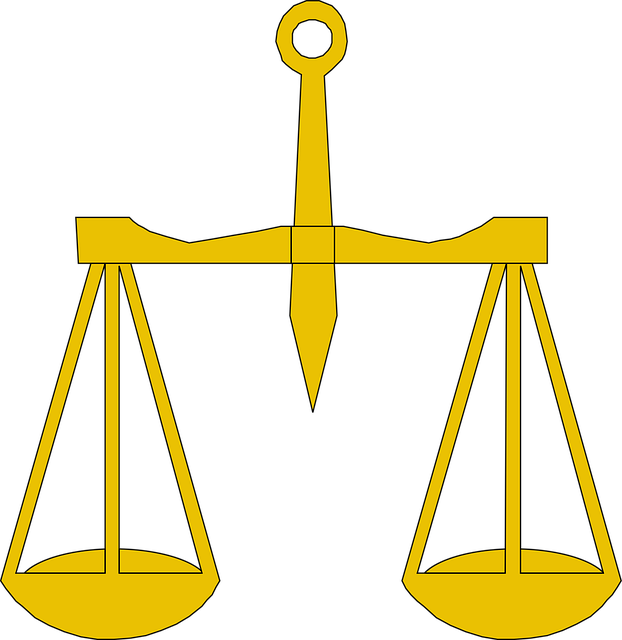Identifying and managing litigation risks related to unfair workplace practices is vital for businesses. This involves addressing disputes, harassment, contractual issues, and regulatory non-compliance through proactive strategies. By staying informed, fostering compliance culture, and establishing clear policies, organizations can reduce legal exposure and improve defense verdicts. Effective risk management includes robust internal complaint mechanisms, regular audits, training, and strong documentation to deter lawsuits and protect financial/reputational interests. Engaging specialized legal counsel further ensures favorable outcomes in high-stakes cases.
Litigation risk management is a critical component of any successful business strategy. With an increasing focus on employee rights, understanding and mitigating litigation risks in the workplace have become paramount. This article delves into key areas such as identifying unfair practices that could trigger legal action, implementing effective strategies to safeguard businesses, and exploring the transformative impact of robust litigation risk management. By navigating these aspects, organizations can foster fair work environments while protecting themselves from costly legal battles stemming from perceived unfair workplace practices.
- Understanding Litigation Risks in the Workplace
- Identifying Unfair Practices and Potential Legal Action
- Strategies to Mitigate Legal Risks for Businesses
- The Impact of Effective Litigation Risk Management
- Navigating Legal Action: Rights and Responsibilities
Understanding Litigation Risks in the Workplace

In today’s complex legal landscape, understanding litigation risks is paramount for any organization aiming to protect itself from potential legal action for unfair workplace practices. These risks can manifest in various forms, from employment disputes and harassment allegations to contractual disagreements and regulatory non-compliance. Recognizing these threats is the first step towards effective risk management; it enables businesses to implement proactive strategies that safeguard their interests both internally and externally.
Across the country, corporate and individual clients alike face mounting legal pressures, necessitating a robust approach to risk assessment and mitigation. The ability to navigate through complex cases and winning challenging defense verdicts is not merely a matter of luck but strategic preparation. By staying informed about evolving laws and regulations, fostering a culture of compliance, and establishing clear policies, organizations can significantly reduce their litigation exposure.
Identifying Unfair Practices and Potential Legal Action

Unfair workplace practices can take many forms, from discrimination and harassment to breach of contract and misuse of company resources. Identifying these practices is a critical step in managing litigation risk. Organizations should establish robust internal complaint mechanisms that encourage employees to report any suspected unethical behavior or unfair treatment without fear of retaliation. This proactive approach not only helps in mitigating potential legal action for unfair workplace practices but also promotes a culture of transparency and accountability.
Across the country, numerous cases have highlighted the consequences of ignoring such issues. Winning challenging defense verdicts in white-collar defense cases can be costly, both financially and reputationally. By conducting regular audits, training managers and employees on compliance, and implementing clear policies against unfair practices, companies can significantly reduce their exposure to legal action. Early detection and swift corrective actions demonstrate a commitment to fairness and due process, which can serve as a deterrent to potential lawsuits.
Strategies to Mitigate Legal Risks for Businesses

Businesses facing potential legal action for unfair workplace practices can employ proactive strategies to mitigate risks and protect their interests. One key approach is to establish robust policies and procedures that adhere to employment laws and regulations, ensuring fair treatment of employees at every stage of the employee lifecycle. Regular training sessions for managers and staff on these policies can help foster a culture of compliance.
Additionally, documenting all workplace practices, decisions, and communications can serve as strong evidence in case of any disputes. An unprecedented track record of fair employment practices may even lead to winning challenging defense verdicts in court. Firms should also consider engaging experienced legal counsel who specialize in employment law to review and update policies, provide guidance on sensitive matters, and represent the business in high-stakes cases, ensuring they have an excellent chance at securing favorable outcomes.
The Impact of Effective Litigation Risk Management

Effective litigation risk management plays a pivotal role in mitigating potential legal action for unfair workplace practices. By proactively identifying and addressing risks, organizations can significantly reduce exposure to costly lawsuits and reputational damage. This proactive approach involves meticulously reviewing policies, procedures, and employee conduct to ensure compliance with labor laws and regulations. Through such measures, companies can foster a culture of fairness and transparency, thereby deterring potential plaintiffs.
Moreover, robust litigation risk management extends beyond compliance to enhancing organizational resilience. By anticipating and preparing for various legal scenarios, businesses become better equipped to navigate complex situations, including class-action lawsuits or high-profile disputes. This strategic planning involves staying abreast of legislative changes, industry trends, and emerging legal precedents that could impact workplace practices across the country. Such a proactive stance not only minimizes financial losses but also strengthens relationships with philanthropic and political communities, further reinforcing the organization’s commitment to ethical business conduct.
Navigating Legal Action: Rights and Responsibilities

Navigating legal action for unfair workplace practices is a delicate process where every step holds significance. When an employee believes they have been subjected to unjust treatment, understanding their rights and responsibilities becomes paramount. This involves recognizing the potential for legal recourse, such as filing complaints with relevant regulatory bodies or initiating civil lawsuits, including jury trials, to seek redress.
Employers, too, have a duty to comprehend their obligations throughout all stages of the investigative and enforcement process, from initial internal investigations to responding to official inquiries and, if necessary, engaging in general criminal defense strategies. Balancing these rights and responsibilities ensures that both parties are treated fairly, fostering a healthier work environment and promoting adherence to legal standards.
Effective litigation risk management is essential for businesses aiming to avoid costly legal action for unfair workplace practices. By understanding potential risks, identifying problematic behaviors early on, and implementing robust strategies, companies can create a fair and safe environment for all employees. This proactive approach not only minimizes financial exposure but also fosters a positive organizational culture that respects individual rights. Remember, navigating legal action should be the last resort; thorough risk management can prevent this altogether, ensuring a harmonious and productive workplace.






